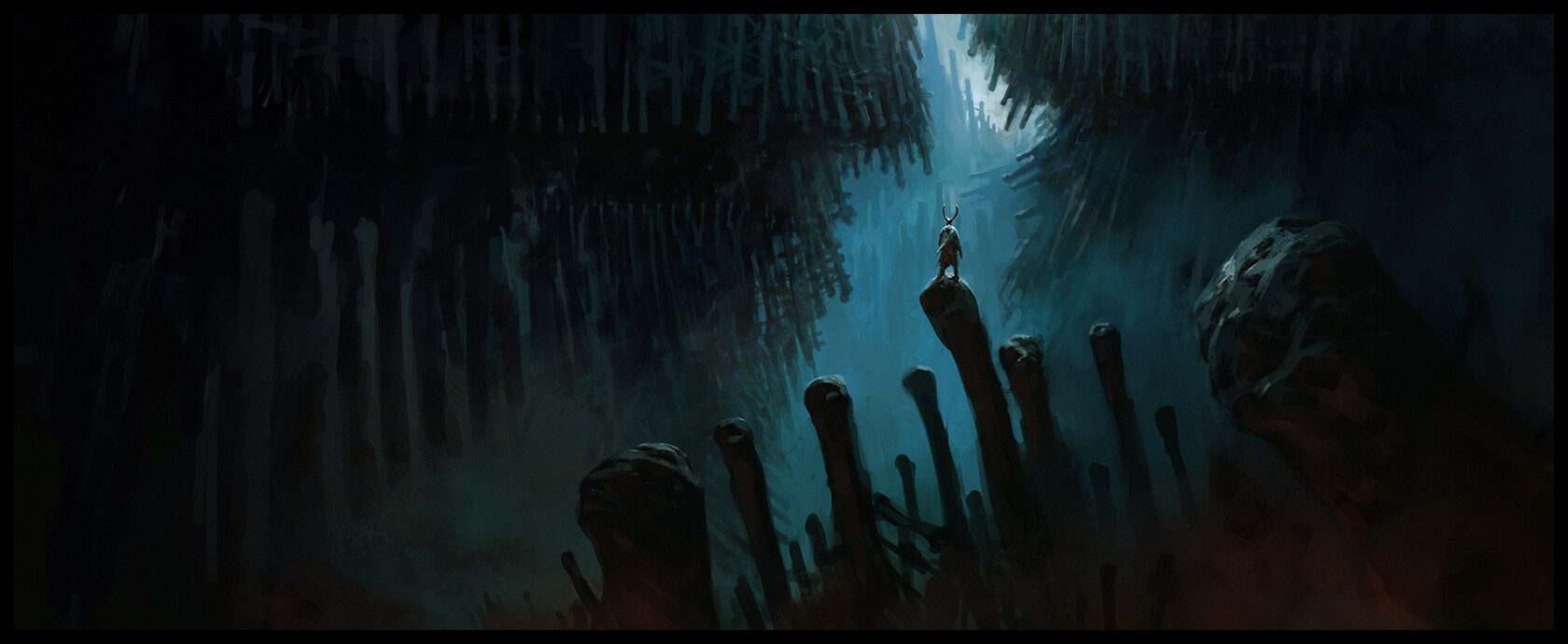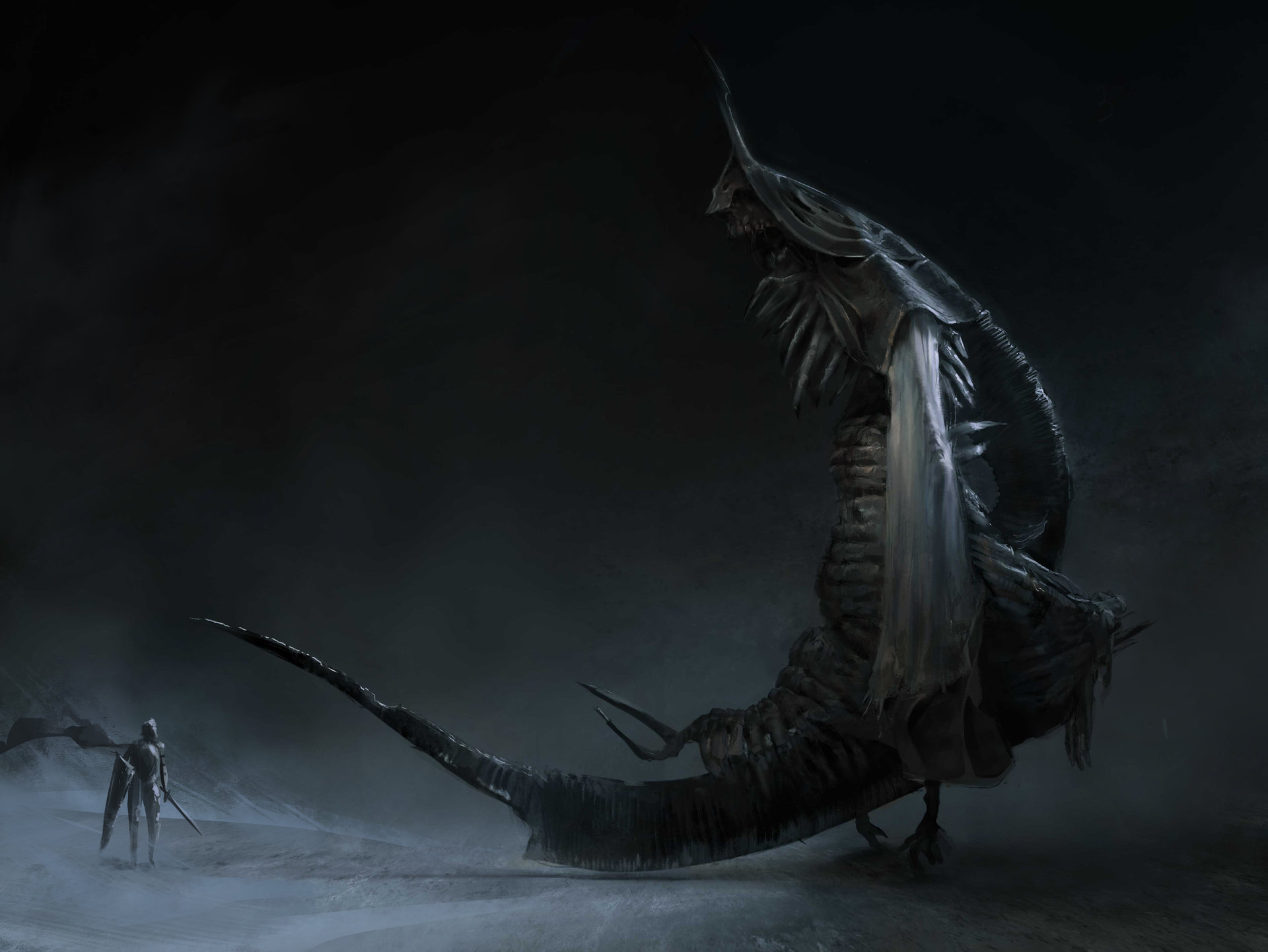About two years ago now, on a dark, rainy night at the campus library, I wrapped up a little campaign inspired by Aleksi Serviö's Gloom. Its been on my mind lately and enough time has passed, I think, that now would be a good time to dissect the soggy corpse, and find out what made it tick.
So, The Nightmare Begins Again
Premise was that a sleeping plague afflicted the waking world, plunging my players into a soporific nightmare-realm which in time would steal them of their memories, minds, and life. In order to forestall this terrible fate, they cooperated with a mysterious, paraplegic sailor, who promised them freedom from the dream in return for the star-charts he needed to navigate.
These star-charts, of course, were scattered across dungeon-islands and invariably held in the clutches of their most villainous denizens.
In plain parlance, the gameplay loop was: sail to island-> explore-> find star-chart-> kill its owner-> return to ship.
Nothing groundbreaking, but the whole "dream" thing meant I could throw in anything I wanted. The Mysterious Menagerie of Dr. Orville Boros? Of course. The Meal of Oshregaal, reskinned as a piratical caper? Sure, why not. Bespoke dungeons made by yours truly? Absotively.
Now the problem with this smorgasbord approach was a lack of interconnectivity. On the one hand, the islands were fictionally separated (by the ocean), so it sort of made sense. On the other, the islands' hyper-individuality made it pretty clear that they only existed to be the "dungeon of the week."
And that can be fine. But there is a certain richness in your players gradually uncovering the truth about the world, drawing connections between disparate places and people, then backtracking to unravel past mysterious, armed with well-won knowledge.
I sort of made a stumbling-stab at building The Common Dream into a more cohesive world by posing questions, such as:
Who is the Dream King?
Where did the dream come from?
What power do the star-charts hide?
Who is the sailor?
Where are all these demons coming from?
What is happening in the waking world?
Theory was, anti-canon would save my bacon. Problem was, when my players set about finding answers, they could tell I didn't have them. This reduced their investment, understandably.
If I had to run all this again, I would have some answers in mind. And I'd probably include one or two raft-fulls of shanty-singing corpses who follow the players from island to island.
Time is A Thing You Put on The Wall
The moon bore the face of a clock. Each session, I gave my players 12 in-game hours to wrap up their business on the island. At midnight, everything re-set. Dead players came back (with nerfed stats), enemies revived, dungeon semi-randomized.
At least that was the idea. Anyone who's played a rogue-like knows how frustrating it can be to face the same challenges, again and again. As it turns out, its kind of the worst in TRPGs.
In my infinite wisdom, I attempted to rectify this problem by not reviving the enemies, and leaving the dungeon-layouts alone. So in effect, my players were just immortal. Worse, they knew they were immortal. Hijinks ensued. The fun kind of hijinks, but ultimately--just as in the real world--immortality bleeds life of its worry, its tension, and its joy.
What would I change? Twelve-in game hours, then the island sinks into the sea. Die in the dream, you die in real life. Maybe every few hours some sort of pelagic horror would crawl out from behind the moon and set about eating everyone. That sounds fun.
The Numbers, What do They Mean?
This brings us, finally, to the game system. I ran Common Dream in the Cypher system, with all-homebrew character options and items. Newsflash: the Cypher system's resolution and class systems are about as intuitive as the finer details of classical Latin grammar. At least for my players. Personally, I thought it would run much smoother. Alas.
Now what I did like were the cyphers themselves. Powerful, limited use items; few things are better to evoke strategic thinking. I included some permanent magic items as well. These were exploited, which can be fine, but at times did break the game.
Never talk to me about magnets. Not ever.
I think Bastionland's got the answer to this. Pepper your magic items with limited uses, inconvenient girths, terrible prices, or wills of their own. Just delicious.
As to the character options, I think perhaps I should've just thrown them out the window. Its kind of weird to me that XP just lets your milk your race/class/whatever for inexplicable jumps in ability. It turns players inwards; they see only dollar signs and their Amazon cart. That's a super wonky metaphor but I'm keeping it.
If character progression lies in the world itself, in people, in objects, in knowledge, then the players have a better reason to interact with it. The OSR sphere has spilled a lot of scrumptious ink on this subject.
In Conclusion
Harsher time pressure. More intentional worldbuilding. Diegetic advancement.




No comments:
Post a Comment